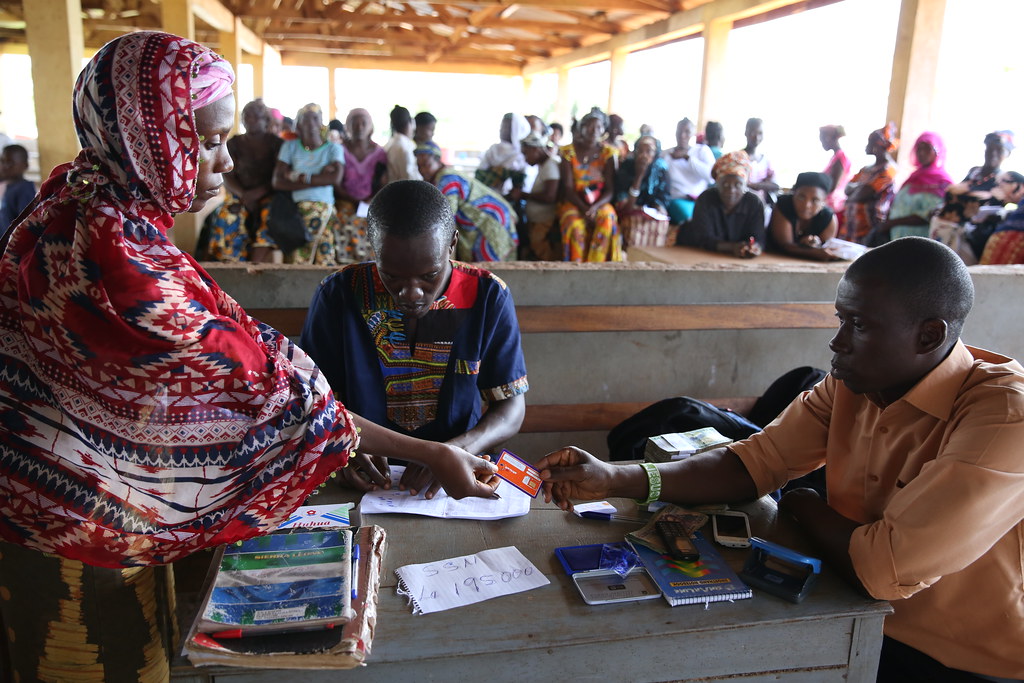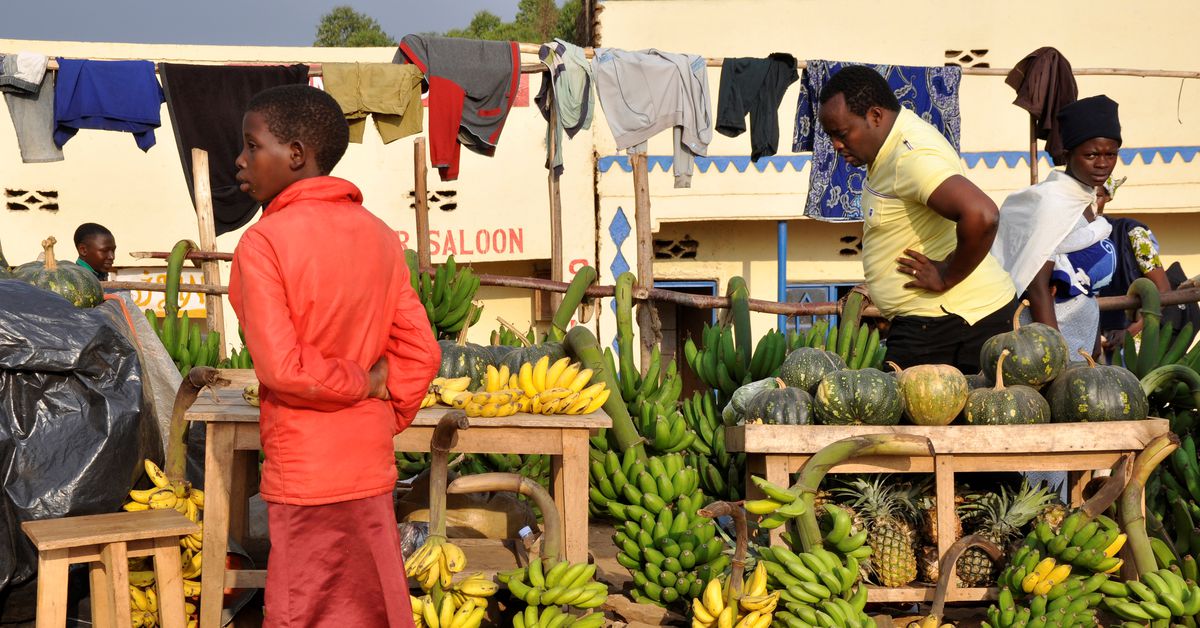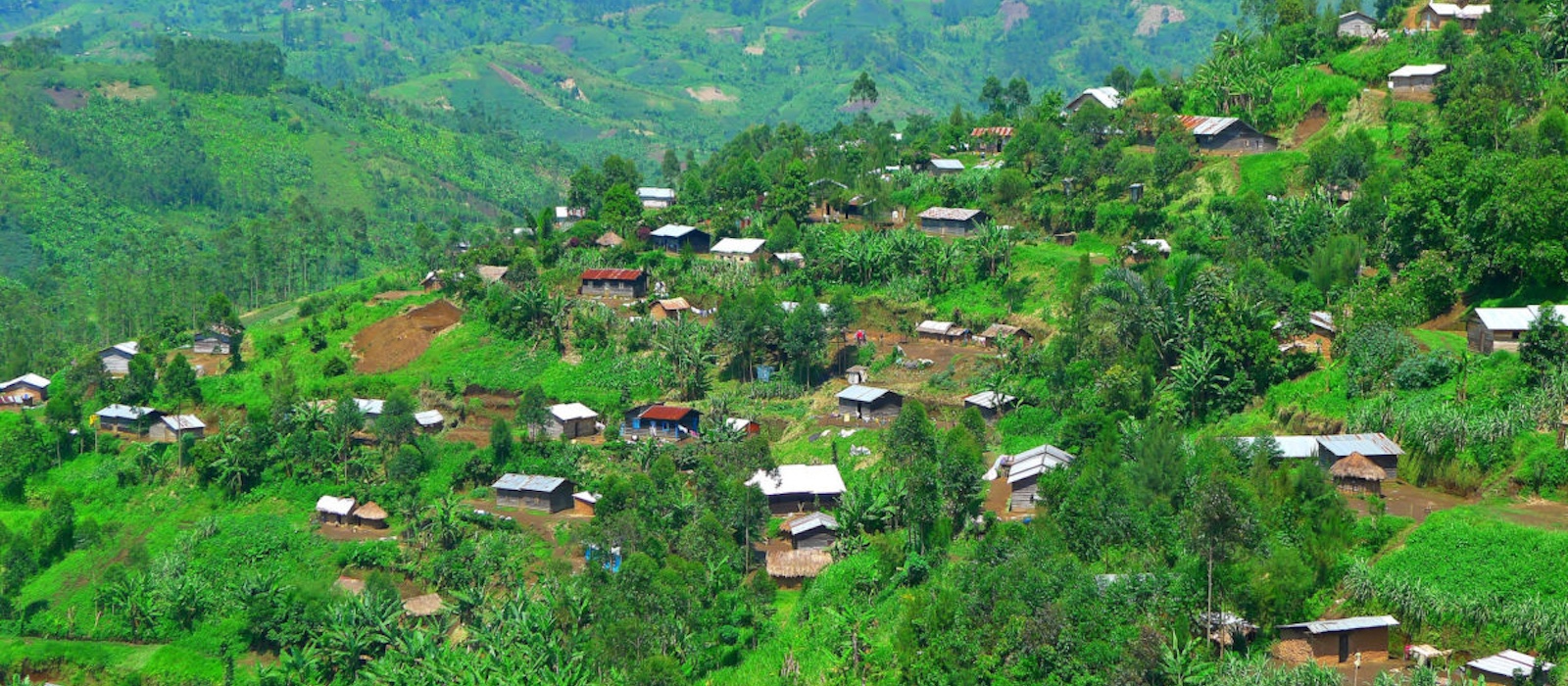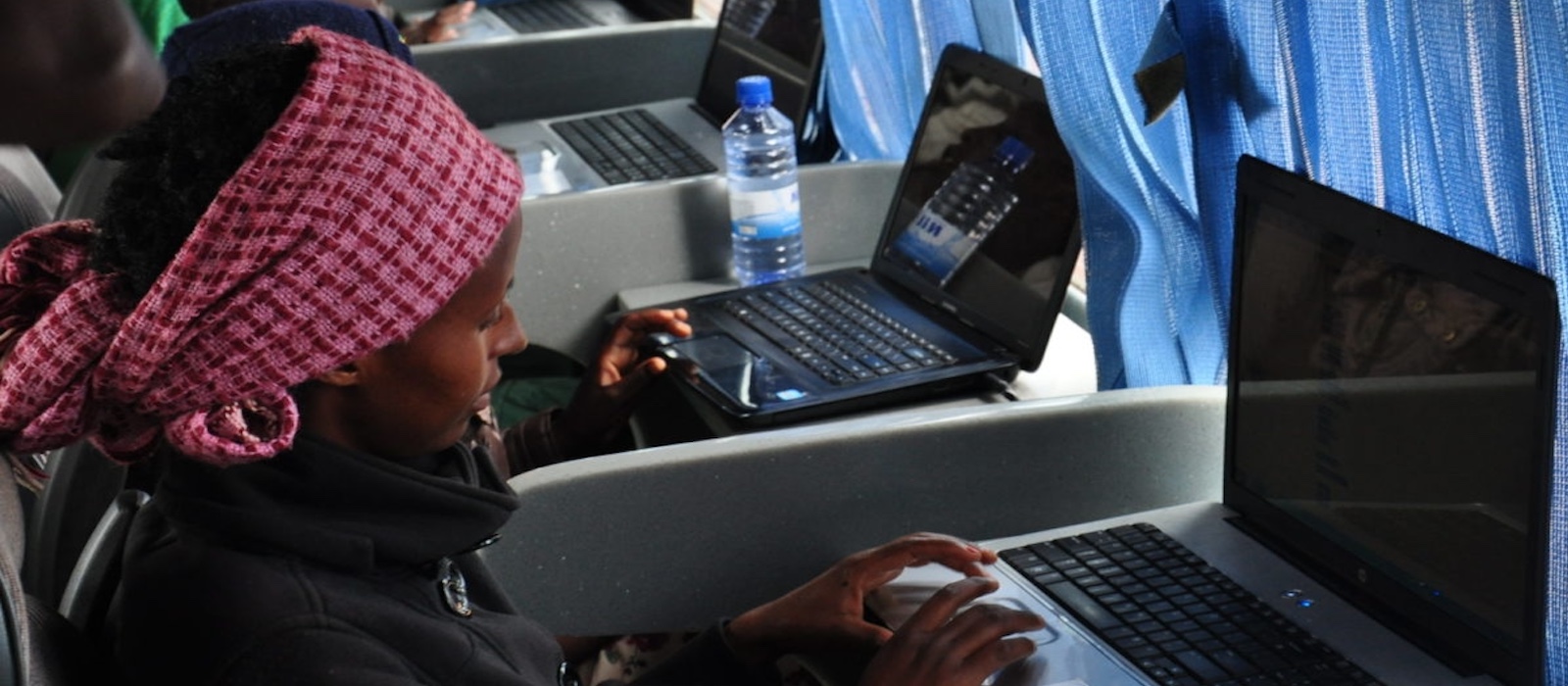“Cash Benchmarking” Studies Drive Evidence Revolution at USAID

Demoh Contel (left) receives a cash transfer payment in Freetown, Sierra Leone in 2015. Credit: Dominic Chavez. Copyright: Photo © Chavez/World Bank
CEGA inspires USAID to apply cash benchmarking to programmatic evaluation, the first attempt by a bilateral donor to do so.
Large aid agencies must make hard choices about how to allocate finite resources to improve lives. In recent years, USAID has demonstrated an increasing commitment to making decisions based on the impacts as well as the costs of their programs. Towards this end, the agency has increased the number of impact evaluations (as opposed to performance evaluations) it supports, while promoting innovation in evaluation and measurement. The US Global Development Lab and Development Innovation Ventures (DIV) are leading this “quiet revolution” within USAID.
DIV’s investment in a series of landmark “cash benchmarking” studies led by CEGA and conducted through the Development Impact Lab (DIL), are perhaps USAID’s boldest move in this direction, and represent the first attempt by a bilateral donor to undertake this particular approach to programmatic evaluation. The investment consists of five randomized evaluations that assess unconditional cash transfers, in some cases in head-to-head comparisons with in-kind USAID programs interventions that provide goods and services. Cash transfers work well as a benchmark for evaluating traditional aid programs with higher administrative costs because they historically perform well on household-level outcomes (earnings, educational attainment, nutrition, consumption, etc.) and require minimal administrative costs to implement. The evaluations—implemented in partnership with GiveDirectly, Innovations for Poverty Action (IPA), CEGA, and local partners—are anchored by a powerful question about the value for money of programming: are USAID interventions as effective at improving lives as simply dividing up the cost of those interventions and giving it directly to beneficiaries as cash?
CEGA affiliate Craig McIntosh (UCSD) and Andrew Zeitlin (Georgetown), released 18-month and 36-month results from a randomized evaluation in Rwanda showing that a workforce readiness program, Huguka Dukore, was successful at improving important outcomes (work hours, productive assets, savings, and subjective well-being), and that cash was relatively more successful on a cost-equivalent basis. After the 36-month follow-up, about half of the effects of both programs had faded.
USAID and the Rwanda research team have conducted a number of dissemination events across USAID bureaus and missions, ensuring wide evidence awareness across the agency. Meanwhile, several articles (Washington Post, Devex, Vox, Center for Global Development, Medium) have explored the potential of these studies to transform how USAID evaluates interventions and invests its money.
The investment in cash benchmarking also points to the growing influence of the larger body of cash transfer research on the evaluation ecosystem (for example, CEGA faculty director Ted Miguel’s findings on the long-term impacts of cash on entire communities). It’s encouraging to see CEGA’s cash benchmarking work move the world’s largest aid agency toward more innovative and rigorous approaches to evaluating the comparative impacts and costs of its programs.







